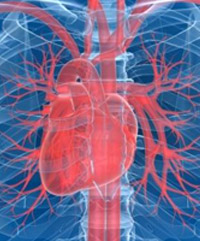Education
-
Physiotherapist Sammy Margo looks at cramp
What is cramp and why does it hurt so much?
Cramp is an old French word meaning spasm. It occurs when your muscles suddenly cramp and shorten causing pain, usually in the calf but it can affect the small muscles of the feet too. It is incapacitating.
Cramp can last as little as a few seconds to as long as ten minutes. The severity of the pain can vary and the muscles may feel tender for up to 24 hours after a leg cramp.
What is the cause of cramp?
We don’t know the real cause of cramp although there are lots of hypothesis including a magnesium or salt deficiency, a build-up of potassium or lactic acid in the tissues or just a sudden random tightening of the tissue.
Some people get it in the night, others while they are exercising, standing up for long period of time or sitting at a desk too long. Pregnant women can be susceptible too.
How can you alleviate it?
As a physiotherapist in football I would often run on to the pitch to treat these grown men lying on the floor writhing in absolute agony and needing their legs to be stretch out. In some cases, they had to be carried off the pitch as they couldn’t play on.
To help prevent it, it can help to take a warm bath to relax the muscles before sleep, eat a magnesium-rich banana and avoid too much alcohol, have a massage or just stretch the muscles that most usually cause cramp. Stretches need to be done for a good five minutes at a time and for at least 4 weeks. Staying well hydrated is also a good idea.
GPs may prescribe quinine for people who get painful leg cramps regularly and experience disrupted sleep. The treatment can help to reduce the number and severity of the attacks.
Topical creams rubbed into the leg area can also help.
Sammy Margo was English football’s first female chartered physiotherapist. She has also worked with the England basketball team and the England athletics team.
www.sammymargophysiotherapy.com
We don’t know the real cause of cramp although there are lots of hypothesis including a magnesium or salt deficiency, a build-up of potassium or lactic acid in the tissues or just a sudden random tightening of the tissue.
Some people get it in the night, others while they are exercising, standing up for long period of time or sitting at a desk too long. Pregnant women can be susceptible too.
How can you alleviate it?
As a physiotherapist in football I would often run on to the pitch to treat these grown men lying on the floor writhing in absolute agony and needing their legs to be stretch out. In some cases, they had to be carried off the pitch as they couldn’t play on.
To help prevent it, it can help to take a warm bath to relax the muscles before sleep, eat a magnesium-rich banana and avoid too much alcohol, have a massage or just stretch the muscles that most usually cause cramp. Stretches need to be done for a good five minutes at a time and for at least 4 weeks. Staying well hydrated is also a good idea.
GPs may prescribe quinine for people who get painful leg cramps regularly and experience disrupted sleep. The treatment can help to reduce the number and severity of the attacks.
Topical creams rubbed into the leg area can also help.
Sammy Margo was English football’s first female chartered physiotherapist. She has also worked with the England basketball team and the England athletics team.
www.sammymargophysiotherapy.com
-
Philip Healy of Clinic6 looks at cryotherapy
Podiatrists are frequently asked about treating verrucae. But as their experience is often with limited success, they are reluctant to do this. Is this your experience? Read more
-
Michelle Weddell looks at a bone growth disorder
Osteochondrosis is seen by clinicians working within paediatric and musculoskeletal clinics. Read more
-
Michelle Weddell looks at the problem of Athlete’s foot
ALG Head of Education Michelle Weddell looks at the common problem of Athlete’s foot. Read more
-
Role of acupuncture today
ALG Head of Education Michelle Weddell considers the role of acupuncture in today’s treatment of patients. Read more
-
Importance of Vascular assessment
ALG Head of Education Michelle Weddell considers the importance of vascular assessment in determining lower limb peripheral arterial disease before treating patients. Read more





